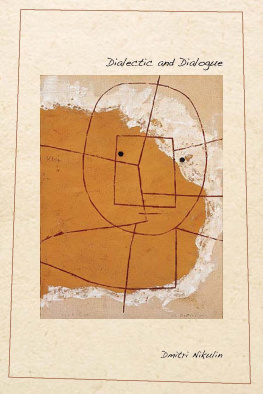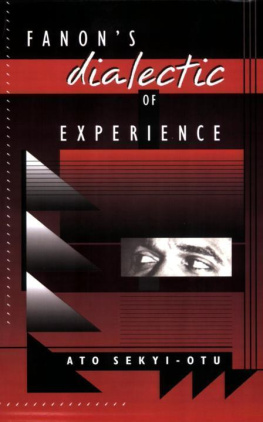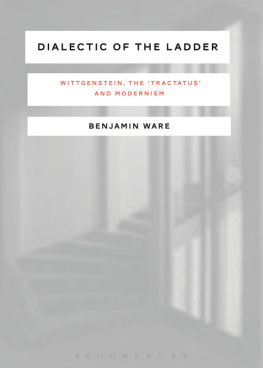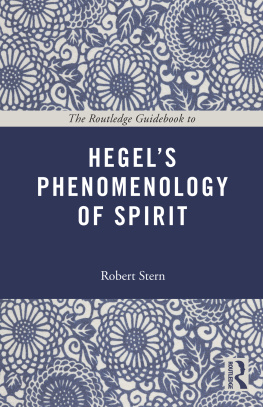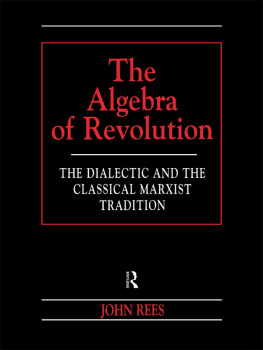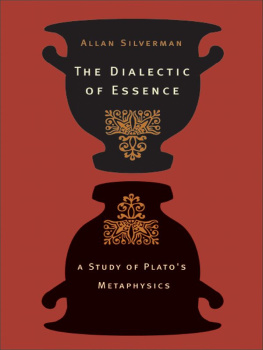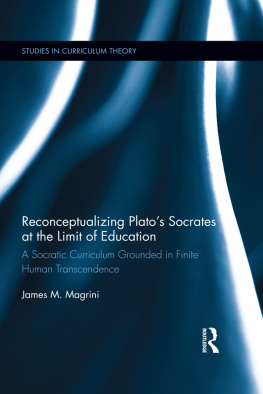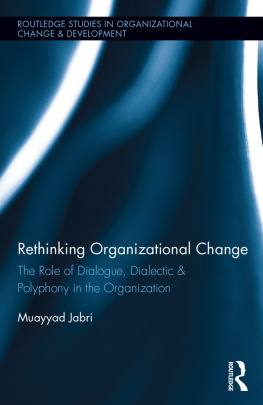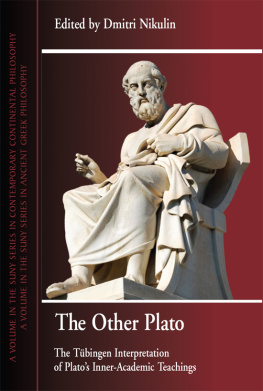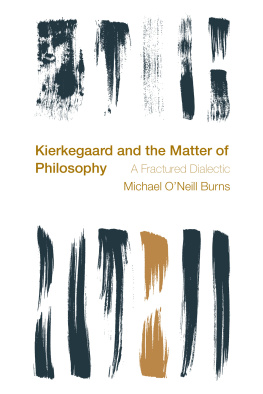Nikulin Dmitri - Dialectic and Dialogue
Here you can read online Nikulin Dmitri - Dialectic and Dialogue full text of the book (entire story) in english for free. Download pdf and epub, get meaning, cover and reviews about this ebook. City: Palo Alto, year: 2010;2011, publisher: Stanford University Press, genre: Religion. Description of the work, (preface) as well as reviews are available. Best literature library LitArk.com created for fans of good reading and offers a wide selection of genres:
Romance novel
Science fiction
Adventure
Detective
Science
History
Home and family
Prose
Art
Politics
Computer
Non-fiction
Religion
Business
Children
Humor
Choose a favorite category and find really read worthwhile books. Enjoy immersion in the world of imagination, feel the emotions of the characters or learn something new for yourself, make an fascinating discovery.
- Book:Dialectic and Dialogue
- Author:
- Publisher:Stanford University Press
- Genre:
- Year:2010;2011
- City:Palo Alto
- Rating:3 / 5
- Favourites:Add to favourites
- Your mark:
- 60
- 1
- 2
- 3
- 4
- 5
Dialectic and Dialogue: summary, description and annotation
We offer to read an annotation, description, summary or preface (depends on what the author of the book "Dialectic and Dialogue" wrote himself). If you haven't found the necessary information about the book — write in the comments, we will try to find it.
Dialectic and Dialogue — read online for free the complete book (whole text) full work
Below is the text of the book, divided by pages. System saving the place of the last page read, allows you to conveniently read the book "Dialectic and Dialogue" online for free, without having to search again every time where you left off. Put a bookmark, and you can go to the page where you finished reading at any time.
Font size:
Interval:
Bookmark:
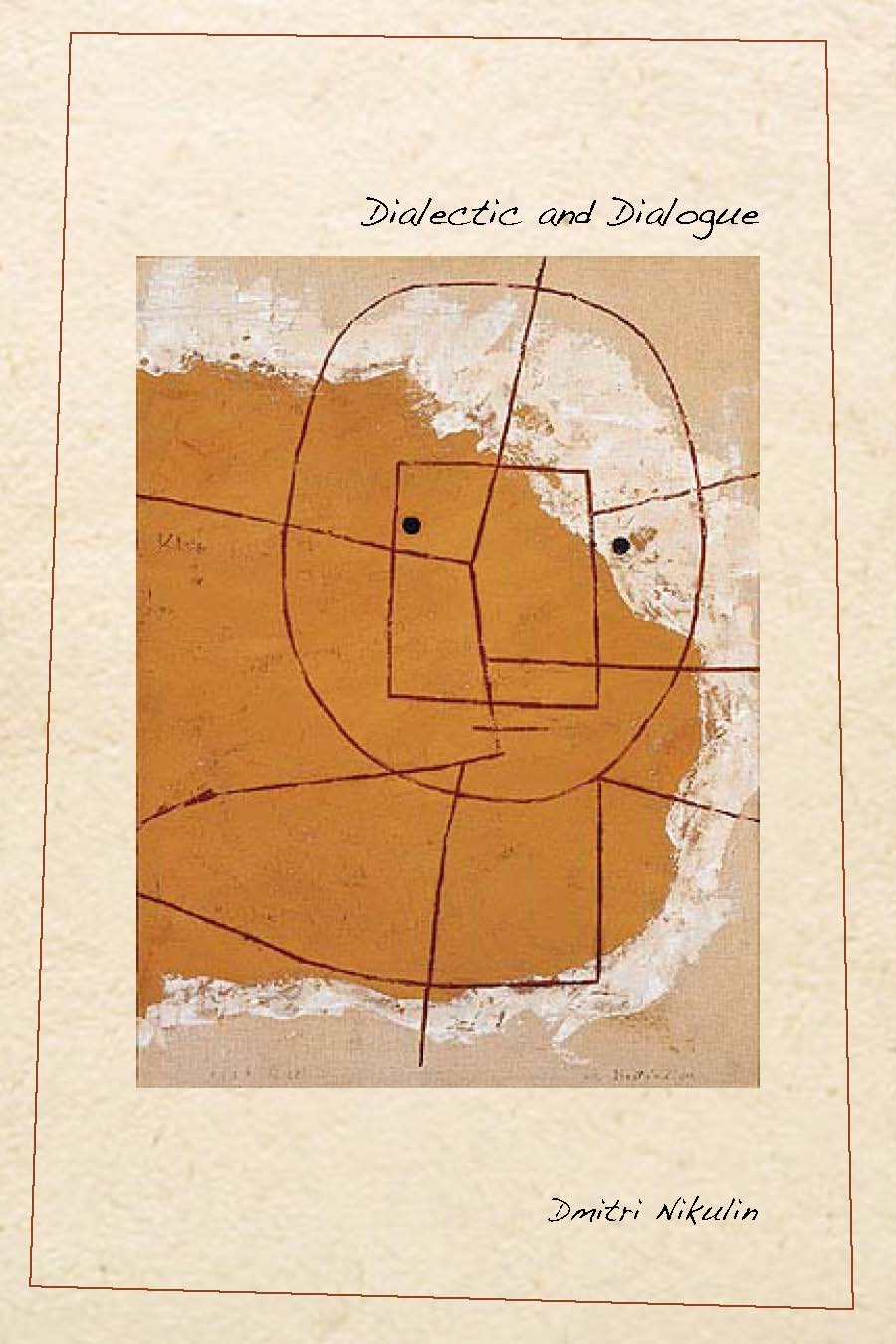
I would like to thank William Desmond, Caryl Emerson, Eyjlfur Kjalar Emilsson, Rainer Forst, Manfred Frank, Lydia Goehr, Jens Halfwassen, Agnes Heller, Gregg Horowitz, Vittorio Hsle, Mikhail Iampolski, Robert Pippin, Mark Roche, and Arbogast Schmitt for their most enlightening dialogical and dialectical discussions, which helped this book take its final form. I am grateful to Duane Lacey and Erick Raphael Jimnez for their assistance in editing the manuscript, and to Emily-Jane Cohen, Sarah Crane Newman, and Tim Roberts at Stanford University Press for helping bring the book to publication. My gratitude further extends to the Alexander von Humboldt-Stiftung for the opportunity to work on the book at the Universities of Marburg and Tbingen, as well as to the Forschungskolleg of Frankfurt University in Bad Homburg. Finally, I want to thank my familyAlya, Alex, and Anastasiyafor their constant dialectical criticism and persistent dialogical feedback.
Since dialogue cannot be finalized, cannot be brought to a point where each participant will gain his or her definite identity and every notion will find its place within a univocally defined system, a conclusion to a book on dialogue and its relation to dialectic seems superfluous. Perhaps it is better to finish the discussion with a crafted dialectical argument about dialogue, which proceeds in an Aristotelian way, and, unlike dialogue, is both complete and completed.
Whether the dialogue is unfinalizable?
We proceed thus : Objection 1 . It would seem that dialogue is finalizable insofar as a conversation should be complete and thus completed and final. Otherwise, if left unfinished, any speech would be without a conclusion and therefore without an end, and hence without meaning.
Objection 2 . Furthermore, those involved in either a conversation or an argument have a finite capacity of reasoning. To prove a point, one needs to do so in a finite and definite number of steps. Therefore, for finite reason, unfinalizable reasoning is impossible.
Objection 3 . Moreover, a dialogue must be finalizable because at a certain point all of the possible and discernible meanings of the notion or question being debated will be mentioned and sufficiently discussed, so there will be nothing left to say except as a repetition of what has already been said.
Objection 4 . Finally, if it were unfinalizable, a dialogue would come to a standstill once the interlocutors (or one of them) do not want to continue, simply decide to stop, or find it impossible to continue the conversation.
On the contrary , as Socrates says (Plato, Lysis 222E):.... (I need ... to rethink entirely what was said), concerning which the gloss states: dialogue always allows one to reconsider, together with the other and from a different perspective, what has already been said, and also to discuss something utterly novel within a new exchange.
I answer that it is not impossible that dialogue may be unfinalizable, and it is necessary for dialogue to continue further both about the same topic and about different ones. For dialogue is a decentered conversation, an exchange of rejoinders by multiple interlocutors in which each interlocutor is present as a uniquely recognizable and recognized voice, through which each one communicates with the others and expresses ones personal other. The driving force of dialogue is not the unity and struggle of contradictory opposites, but rather allosensus, a non-confrontational disagreement that allows one to listen to the other and to continue the discussion. The unfinalizability of dialogue lies in the impossibility of extinguishing ones personal other, and of fully and ultimately thematizing or framing oneself in a finite number of statements through discussion or the steps of an argument. Hence dialogue can always be continued and renewed without any repetition of its contents.
Reply to Objection 1 . That dialogue is unfinalizable, that it can always be continued without exhaustion or repetition, does not mean that it is unfinished. Dialogue is meaningful at any point even if the discussion arrives at a perplexing impasse. The very attempt to understand ones own misunderstanding is fruitful, and a lack of meaning is meaningful insofar as it allows one to continue the discussion.
Reply to Objection 2 . Certainly, to be complete and completed, an argument needs to be carried out in a finite number of steps. Yet dialogue is not about producing arguments, which, although they can be obtained within dialogue, are as though a by-product of dialogical discussion; valid arguments can also be established in and by monological thinking. Dialogue concerns communication with the other and the expression of ones personal other, which is neither a thing, nor a notion, nor a function of social or historical arrangements. Human finitude is present precisely in and through an unfinalizable exchange with the other person, which always involves ones personal other that cannot be fully thematized or represented in any number of statements.
Reply to Objection 3 . Again, a property of a thing or the meaning of a term may, but does not need to be, discussed in dialogue: they can equally both be considered in the absence of a real other who responds, interrupts, and disagrees. Furthermore, even in a discussion about a particular notion, nothing guarantees that the Prodican program of discerning all possible meanings can be realized because nothing prevents a new but not yet identified meaning from being discerned or produced within a new context or conversational situation, and nothing prevents the emergence of new usage for the term, or guarantees that within the already discussed and established meaning there is nothing left over for further subdivisions.
Reply to Objection 4 . To be in dialogue is to communicate with other persons through an exchange of rejoinders in an interaction where each voice sounds independently but also within the whole of the dialogue, which in turn is irreducible to the sum of its constituents. Hence a single voice separate from others in dialogue is a contradictio in adiecto . Whoever chooses to stop dialogical conversation with others by an act of voluntary self-suspension chooses not to be, because to be is to be in dialogue.
[T]on hett ... logon kreitt poiein (Protagoras, B6b DK [cit. ap. Aristotle, Rhetoric 1402a23]). Cf. Dissoi Logoi 1.1 sqq.
The term dialectic ( dialektik [sc. tekhn ]) appears to have been invented by Plato, as well as other terms ending in -ik , such as rhetoric ( rhtorik ), eristic ( eristik ), and disputation ( antilogik ). See E. Schiappa, Protagoras and Logos: A Study in Greek Philosophy and Rhetoric (Columbia: University of South Carolina Press, 1991), p. 44.
See Aristotle, Peri tagathoy .
Diogenes Laertius, III.18.
Diogenes Laertius, III.48.
The late Anonymous Prolegomena to Platonic Philosophy characterizes dialogue as a discourse in prose [ logos aney metroy , i.e., nonmetric] consisting of questions and answers by various persons, each properly characterized ( Anonymous Prolegomena to Platonic Philosophy , trans. L. G. Westerink [Amsterdam: North-Holland, 1962], IV.14, 35).
Plato, Symposium 185CE.
Plato, Phaedrus 264C. According to the Anonymous Prolegomena (V.1617), dialogue is cosmos and cosmos is dialogue: both have the same constituents (matter, form, nature, soul, intellect, and divinity), such that dialogue symbolically maps the living organism of the cosmos, where the whole and the parts fit with each other in such a way that one does not exist without the others. The matter of dialogue consists in its characters, its time, and its place; the form of dialogue is its style; its nature is the way in which the discussion is conducted; soul is its demonstration; intellect is the problem being discussed; and divinity is the good.
Font size:
Interval:
Bookmark:
Similar books «Dialectic and Dialogue»
Look at similar books to Dialectic and Dialogue. We have selected literature similar in name and meaning in the hope of providing readers with more options to find new, interesting, not yet read works.
Discussion, reviews of the book Dialectic and Dialogue and just readers' own opinions. Leave your comments, write what you think about the work, its meaning or the main characters. Specify what exactly you liked and what you didn't like, and why you think so.

